The Heart of Forgiveness
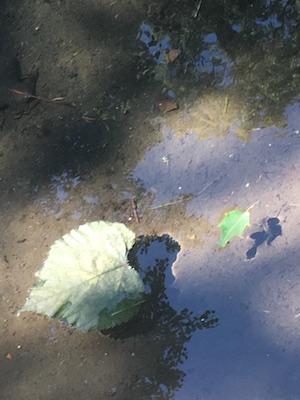 Trees can teach us so much at this beautiful time—in their giving colour, in their giving letting go. Trees graduate us to so many deeper things. I have been thinking of the trees and things lots. Yes, the days are getting darker and yet the trees around me are still encapsulating a quiet strength and a light. As the winter equinox approaches, we are reminded, by example of nature that is still around us, to hold on to our inner light even when things get dark. We are also being shown that this is a mindset that we can apply at all seasons of the year.
Trees can teach us so much at this beautiful time—in their giving colour, in their giving letting go. Trees graduate us to so many deeper things. I have been thinking of the trees and things lots. Yes, the days are getting darker and yet the trees around me are still encapsulating a quiet strength and a light. As the winter equinox approaches, we are reminded, by example of nature that is still around us, to hold on to our inner light even when things get dark. We are also being shown that this is a mindset that we can apply at all seasons of the year.
To survive, the trees appeal for light and hold light and they also shine it out through a constant giving of showmanship as they breathe and connect to the ground, the heavens, and air. At every measure and no matter the season, trees are a masterpiece of a kindness encased in a quiet heroism. Can we be like that to the elements of life we meet in a day?
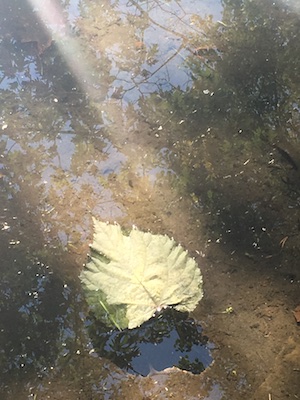 Forgiveness, you see, (and it really took me a long process to have see), is a gift you give to yourself and not to others. It is a giving to you. When you forgive, you create a bigger space for yourself to better follow your own purpose. When you can love, even what can’t be, you open a door for yourself and you can walk through. If we can recall that teshuvah means a returning, we can also remember that choices don’t own us but that we own them. When you can open a window through which you literally say “I’m sorry” in your heart with a big thank you to all those instances that are not entirely in your control, your window begets a ladder into a wider perspective, too.
Forgiveness, you see, (and it really took me a long process to have see), is a gift you give to yourself and not to others. It is a giving to you. When you forgive, you create a bigger space for yourself to better follow your own purpose. When you can love, even what can’t be, you open a door for yourself and you can walk through. If we can recall that teshuvah means a returning, we can also remember that choices don’t own us but that we own them. When you can open a window through which you literally say “I’m sorry” in your heart with a big thank you to all those instances that are not entirely in your control, your window begets a ladder into a wider perspective, too.
And when you can forgive what you in your humanness, which includes imperfection and flaw, could not see or do better, (and this need include those instances where we brought our best and we just couldn’t see something of pain or for the worse coming anyway), you suddenly become very sure of what is your responsibility to take charge of and a much better friend to those character attributes you can improve upon within and for yourself.
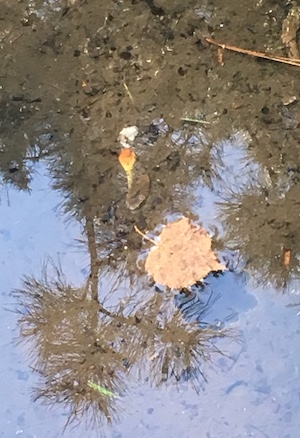 Indeed, it is challenging to stay calm and to be at peace when things don’t go our way and to be okay with it. It is why any inner house of forgiveness is really so very hard. Yet how can we put our attention in a positive direction when life lets us down? How can we not infect our bodies with unproductive thought and not infect those we love and other rich aspects of life that we love in the process?
Indeed, it is challenging to stay calm and to be at peace when things don’t go our way and to be okay with it. It is why any inner house of forgiveness is really so very hard. Yet how can we put our attention in a positive direction when life lets us down? How can we not infect our bodies with unproductive thought and not infect those we love and other rich aspects of life that we love in the process?
One key strategy that helps me the most through things is to respect that the energy of what I think and feel for another or any happening always runs through my body first. That is to say that even if you or I do not actively seek revenge, holding on to anger or wishing for justice can lock us and bring us down just the same. Paying attention to another person’s retribution is rarely helpful to your body or to your heart or to your mind. When you forgive what has been instead and redirect yourself to create light in another direction where there may be need, you can regain your personal power. We can then let go of the power of that person’s story or an undesired event over us, its unhealthy hold.
So let us each appreciate this maxim: The energy of anything we put our attention on must first pass through us. When I have a dark thought towards something or someone that current must pass through me first. When I feel love towards someone or something, my body expands in that positive sensation. Thought of getting wrapped in another’s impact of unpleasantness has the body race in a fight and flight response, too, and it has the vital systems we need for our body to do its best work contract. So when we hurt others, even in our imaginations, aren’t we really hurting ourselves?
Sometimes, albeit sometimes sadly, another’s wrongdoing is not our lesson to have resolve. Getting back only backs us into our own wall. By the same measure, when we hold on to hurts and we begrudge, it is the same as holding onto suffering. No matter how you look at it, or worse feel it, the sensations of resentment are super tiring.
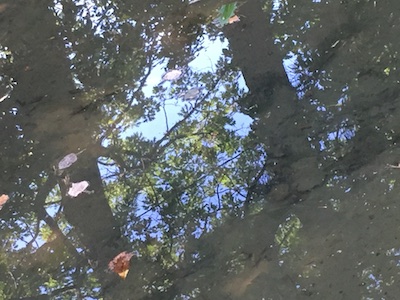 But what does a person do with the person who wasn’t aware that he created hurt? Or the person who isn’t evolved enough to be self-exploring or who is largely unconscious? Or that one too haughty to admit they ever make mistakes? Or those who say sorry in a retaliatory way without creating much future repair? Or those who hold on and don’t let you off the hook? How do you let those hurts go? How do we forgive being taken advantage of, betrayal, rejection, a selfish hurtfulness, an indulgent act of entitlement, any indulgent negativity, an act of manipulation, a thoughtless act, a careless manner, a lack of consideration, being projected upon for an innocent misunderstanding, being so misunderstood as to be violated, situations where someone does not keep their word, our goodness being misappropriated for a selfish or deceitful or careless gain —— we all have felt this to varying degrees in situations in our lives.
But what does a person do with the person who wasn’t aware that he created hurt? Or the person who isn’t evolved enough to be self-exploring or who is largely unconscious? Or that one too haughty to admit they ever make mistakes? Or those who say sorry in a retaliatory way without creating much future repair? Or those who hold on and don’t let you off the hook? How do you let those hurts go? How do we forgive being taken advantage of, betrayal, rejection, a selfish hurtfulness, an indulgent act of entitlement, any indulgent negativity, an act of manipulation, a thoughtless act, a careless manner, a lack of consideration, being projected upon for an innocent misunderstanding, being so misunderstood as to be violated, situations where someone does not keep their word, our goodness being misappropriated for a selfish or deceitful or careless gain —— we all have felt this to varying degrees in situations in our lives.
 The Jewish tradition says you must try three times to make an apology, and this includes making yourself open and receptive to an apology; and thereafter it is up to you to be the best loving receiver to yourself if your effort for repair was not received. The encouragement is to do your best, and then continue to do your best and let go. It espouses that you give charity not only to redirect your mindset but to also transform a negative force into a light-filled one. Charity of being expands the heart. Through charitable caring you are training your mindset, also, to look beyond yourself.
The Jewish tradition says you must try three times to make an apology, and this includes making yourself open and receptive to an apology; and thereafter it is up to you to be the best loving receiver to yourself if your effort for repair was not received. The encouragement is to do your best, and then continue to do your best and let go. It espouses that you give charity not only to redirect your mindset but to also transform a negative force into a light-filled one. Charity of being expands the heart. Through charitable caring you are training your mindset, also, to look beyond yourself.
Master Ou, my beloved teacher, goes one step further. He encourages that you make tea with the enemy at every juncture presented and that for every unkind gesture received, you do a kindness. Making tea with the enemy, for Master Ou, is something we need develop in our hearts imaginatively, too. Where you see unkindness in that offender you do not say anything, even into your heart. To say something would only be unkind.
The notion for both schools of guidance is that we forge forward and cultivate a stream of good quality energy without such pollution. And where we learn to espouse love and compassion, especially for that someone who got their feathers ruffled in a moment of suffering and not understanding that they may have caused us suffering, too, it may be that your understanding to that broken wing regardless helps it one day to more compassionately fly.
When we become more tolerant to how things are, our world becomes more stable. Our tolerance to things indeed is the larger truth to every matter. Being tolerant does not necessarily mean being accepting. You can tolerate something without accepting it but you cannot accept something without tolerating it.
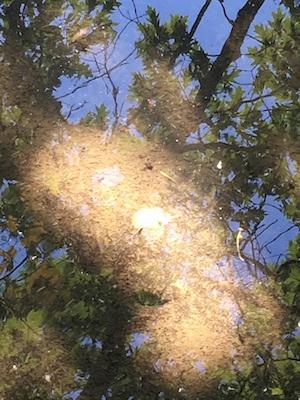 Most of us often get stuck when someone doesn’t validate the injury of an event that we experienced by their approach. More, how can we forgive ourselves anyway when the other person isn’t consciously aware of their less than positive impact or isn’t interested in change? And how can we forgive ourselves anyway for what can’t be and can we respect that many out there are terrified to change or too self-indulgent to do the right thing?
Most of us often get stuck when someone doesn’t validate the injury of an event that we experienced by their approach. More, how can we forgive ourselves anyway when the other person isn’t consciously aware of their less than positive impact or isn’t interested in change? And how can we forgive ourselves anyway for what can’t be and can we respect that many out there are terrified to change or too self-indulgent to do the right thing?
Where we have been made powerless and where we have been made to feel incapable, we must choose to make ourselves powerful and capable. If it requires that we speak to a confidante to get through it, this doesn’t diminish our courage. Often, it can sharpen it. But at the end of the day how we become powerful and capable is up to us.
Being caught off-guard by selfish behaviour once upon a time used to destroy me. When I am caught by the energy of selfishness either in real time or in my attention to stories that once hurt me in this way, I recognize only my thoughts are hurting me now and I focus instead on identifying where I am unnecessarily fretting. In the larger scheme of things, not much of what we fuss or anger about is a life or death situation.
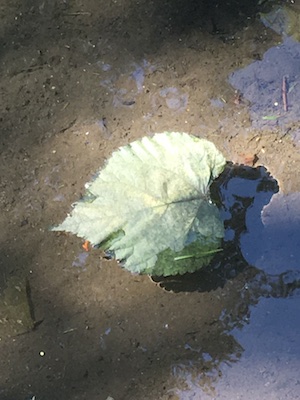 So when I am offset by someone’s selfish way, I identify where I have been or am selfish in areas of my life and I work on expressing more selfless ways. When I dislike gossip, I note where I have stumbled to the same and I focus on a practice of quiet and mindful speech. Where I am bulleted by someone’s impatience, I ask myself where I can become more patient. I try my best to counter my frustration and my resistance towards an angry person or what makes me angry with greater compassion to the one who has ruffled my feathers and so, too, towards myself so that I can feel more love for what is.
So when I am offset by someone’s selfish way, I identify where I have been or am selfish in areas of my life and I work on expressing more selfless ways. When I dislike gossip, I note where I have stumbled to the same and I focus on a practice of quiet and mindful speech. Where I am bulleted by someone’s impatience, I ask myself where I can become more patient. I try my best to counter my frustration and my resistance towards an angry person or what makes me angry with greater compassion to the one who has ruffled my feathers and so, too, towards myself so that I can feel more love for what is.
When I experience the sting of rejection as I go through life, I ask myself where I can be more accepting of others in my life. When I am the receiver of the bitter taste of ridicule, sarcasm, censure or condemnation, I ask where I can refine a kind nature in more areas of my life. When I am negatively impacted by unconscious, indulgent, indifferent, and thoughtless behaviour, I look for ways I can extend my generosity, compassion and goodwill to others. Where I experienced a sour act of an unpleasant permanence or someone who is just inured to behave meanly or not problem-solve for a more peaceful co-existence, I can soften the blow and reformulate the bruise by extending my energy of good in an entirely different direction.
A really important key is not to judge others for where they are at. As we are human this is rather hard to do but the tension of judging others makes our hearts grow hard. Our muscles literally tighten and our blood pressure changes when we compare ourselves to others and see ourselves as lower or better than. Practice humility. Others may not be as mindful as you for a host of reasons. Give it love.
A person may not be aware, may not have been given the tools to know better, may not be mindful overall. A person may be having a bad day that tips the edge, may be in pain and suffering with an inner distress that has nothing to do with you. What if you chose to approach things regardless with a humility so that things become detached and away from the personal? When you notice something in another that is bothersome to you or isn’t to your standard and that fixates you to the point of annoyance or batty, a better strategy is to ask yourself if you can identify something within yourself that can be softened, too.
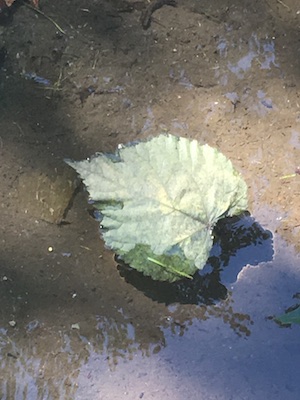 Every rose has a thorn. None of us can change what was but we can certainly find our best solution to an imperfect circumstance and harness our resources and energies where it will be appreciated and can plant good fruit. As we do, we can better separate, almost quite neutrally, what is ours to carry and what is not.
Every rose has a thorn. None of us can change what was but we can certainly find our best solution to an imperfect circumstance and harness our resources and energies where it will be appreciated and can plant good fruit. As we do, we can better separate, almost quite neutrally, what is ours to carry and what is not.
Forgiveness then is a journey for your own growth and for your own happiness. When it is understood into your marrow that forgiveness is a gift you give to yourself and not something you do for others, much in your heart is set free. Forgiveness then means that you can return to your best self, your original form, meaning to those starting elements of giving and love in which your life force and mine were created. And when you get stuck, just remember: To err is human and to forgive is divine.
 Photography by Marina Mashaal
Photography by Marina Mashaal

Rebecca: Bravo!!! Beautifully written. If we all lived with these words of wisdom, the world would be a better place!!!